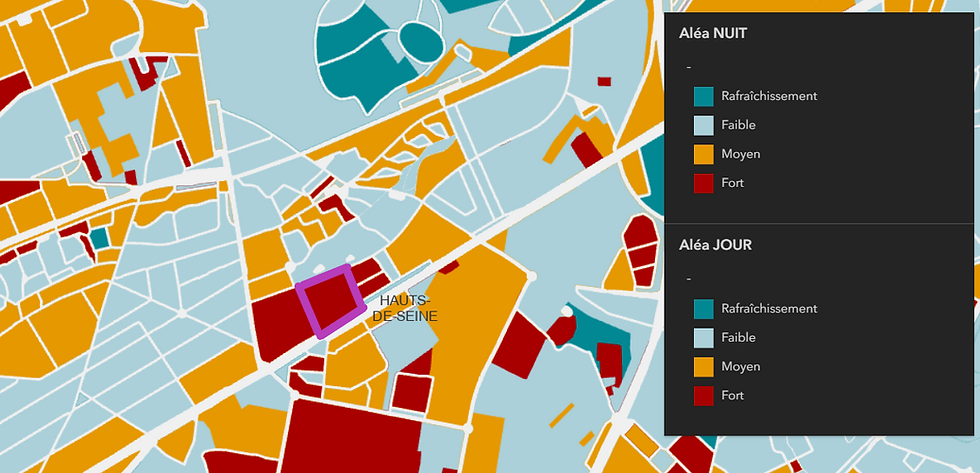The Ghost of Communist Past: a Paris and a Berlin suburb grow apart
- Mascha WOLF
- Oct 31, 2023
- 3 min read
By Mascha Wolf

IVRY-SUR-SEINE, France, Oct 25 – Bound by a shared communist history, Ivry-sur-Seine, a leftist stronghold in the "Red Belt" around Paris, and Brandenburg an der Havel, once rooted in East German socialism, celebrate 60 years of friendship. But with East Germany gradually turning towards the far-right, this ideological connection increasingly seems like a ghost from the past.
To celebrate its remarkable partnership with Brandenburg, a suburb of Berlin, Ivry has organized an exhibition that celebrates its links with the Prussian town with whom it has been twinned for 60 years. The "Square de l'Insurrection" exhibition at Ivry’s Town Hall is a tapestry of black and white photographs, weaving together the stories of these two municipalities across the years.
It highlights the imprints of one town on the other, such as the Boulevard de Brandenbourg in Ivry, christened in 1974, and the Maurice Thorez School in Brandenburg, named after a prominent communist politician from Ivry. Brandenburg showcased a similar, albeit smaller, exhibition along with a French-German movie night to celebrate.
"If Ivry hadn't been such a communist stronghold, this partnership would have never been possible," said Daniel Paris-Clavel, who orchestrated the exhibition in collaboration with the mayor's office.
The political landscape of Ivry-sur-Seine is an intriguing facet of this tale, with deep-rooted socialist traditions and a rich tradition of leftist governance having only seen four mayors, all members of the French Communist Party (PCF), since 1925. In many ways, the political past of Brandenburg in East Germany reflects that of Ivry. Two communist strongholds just outside major capitalist cities.
The city-partnership between Ivry and Brandenburg – which is as old as the Élysée Treaty that cemented the diplomatic alliance between France and West Germany – is a showcase of East Germany reaching out beyond its borders. Through this, many hundreds of the now 83,000 Ivryans, have been able to visit Brandenburg for holidays, artistic endeavors, and professional exchange with the residents.
Marguerite Guiller, a 71-year-old Ivry-sur-Seine local, carries the essence of two towns in her heart. As an adolescent, she spent three consecutive summers in Brandenburg, a picturesque town an hour’s drive west of Berlin.
“It was significant part of my youth”, Guiller said, adding that bonds formed there are far from merely political. "I still have friends in Brandenburg," she added, reflecting on the unlikeliness of such connections against the backdrop of war and division.
However, it wasn't until 1971 that the people of Brandenburg could venture to Ivry and establish relationships in France.
“Most people think of former East Germany as something like a prison”, Anne Anderson, from the Brandenburg city council said. “But this partnership proves otherwise, there were possibilities for exchange, for travel in socialist Germany as well.” For Anderson, the partnership reflects that exchange, despite a changing political landscape.
Today, the twin towns indeed are on different paths. As Ivry clings to its communist heritage, Brandenburg’s population of 72,000 is embracing new political ideologies.
While the socialist party remained strong in Brandenburg and der Havel after the 2021 elections, it has suffered significant losses, as has the communist party. The Christian conservatives and far-right gained votes, becoming the second- and third-strongest parties in the municipality. And surrounding Brandenburg an der Havel, the far right, now has approval rates of over 30% in every East German state.
In light of this, not all Brandenburgers share the same enthusiasm for the Ivry connection. Some residents question the relevance of maintaining this partnership with a town deeply rooted in communism.
“I find this tradition old-fashioned”, Perter Heinrich, a 73-year-old resident of Brandenburg an der Havel says. “This partnership was just the Soviets trying to prove that they can keep up with the US forging partnerships abroad.” He argues that times have changed, and perhaps it's time to reassess the relevance of such historical ties.
Yet, despite the major shifts in European history, friendship between Ivry-sur-Seine and Brandenburg an der Havel has endured, a testament to the power of connection, transcending political boundaries and evolving over the decades. The exchanges between Brandenburg and Ivry continue to this day, encompassing cultural, academic, and political events, and fostering connections between the youth of both towns.
The exhibition in Ivry to celebrate this enduring friendship can be found in front of the town hall until the end of November, the entry is free. Ivry resident Guiller stops by for a moment whenever she is in the area. The friendship between the two towns shaped her youth. “It is special that this exchange was possible despite all the repercussions form the war”, she says. “I didn’t know at the time, that I was experiencing something historic.”


Comments